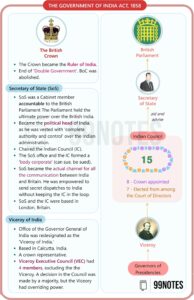26 Feb 2024 : Indian Express Editorial Analysis
Indian Express Editorial Analysis
26-February-2024
1. In poll year, a data question
| Topic: GS2 – Governance – Government policies – Interventions for development in various sectors This topic is relevant for both Prelims and Mains as this analysis touches upon various aspects of governance, including the role of government regulations in protecting individual privacy, the functioning of regulatory bodies like the Data Protection Board, and the need for effective implementation of laws to safeguard democratic principles. |
| Context: |
|
Influence of Big Data on Elections
Micro-Targeting and Campaign Strategies:
- Big data enables candidates contesting elections to employ micro-targeting strategies, utilizing a plethora of engagement options such as bulk SMS, audio calls, and social media to bolster their campaigns.
- However, voters are often unaware of the extensive databases containing their personal information, and their ability to consent to data collection and usage is severely limited.
Network Effect and Social Media:
- The network effect inherent in social media platforms amplifies the benefits for users as more individuals join, facilitating greater connectivity and access to content.
- Platforms capitalize on enhanced data collection to offer personalized services and targeted advertising, leveraging detailed user profiles for monetization purposes.
Impacts on Privacy
Detailed User Profiles
- Platforms amass astonishingly detailed profiles of users, encompassing not only identifiable attributes like age and location but also nuanced preferences and behaviors.
- This extensive data can be monetized through various means, including personalized ads and micro-targeting efforts, as exemplified by the Cambridge Analytica scandal during the 2016 US presidential election.
Political Parties and Data Utilization:
- Political parties leverage digital networks to access detailed information about supporters, enabling tailored content dissemination based on demographic and ideological factors discerned from online activities.
- While these tactics serve both benevolent and manipulative purposes, they raise significant concerns regarding privacy infringement and the opaque use of personal data.
Policy and Regulatory Landscape
India’s Data Protection Act:
- The impending implementation of India’s data protection act presents a critical opportunity to mitigate privacy concerns and safeguard individual rights.
- However, existing flaws, such as insufficient limitations on government access to data and inadequate provisions for individual compensation, necessitate urgent amendments to ensure effective privacy protection, particularly amidst electoral preparations.
Challenges in Implementation:
- The gap between passing and enforcing data protection laws has disadvantaged individuals, exacerbating privacy violations and hindering access to information.
- The absence of a data protection board and inadequate redressal mechanisms further underscore the need for comprehensive regulatory frameworks that prioritize the rights and interests of citizens.
Recommendations for Regulatory Framework
Inclusive Consultation Process:
- Efforts to enhance data protection must prioritize inclusive consultation processes, incorporating feedback from diverse stakeholders to address existing shortcomings and align with international best practices.
- Sustained engagement opportunities are essential to ensure the effective implementation of regulatory measures.
Empowering Data Protection Board:
- The independence and efficacy of the Data Protection Board are paramount, necessitating strict checks on executive powers and transparent appointment procedures.
- Regulatory rules should mandate adherence to principles such as necessity, proportionality, and data minimization, with heightened security standards for sensitive data categories.
Conclusion:
- The evolving digital landscape poses profound challenges to privacy and democratic integrity, particularly during electoral cycles.
- A people-centric approach to data protection is indispensable in rebalancing power dynamics and upholding fundamental rights in the face of expanding big data economies.
- As countries navigate the complexities of digitization, inclusive and rights-based regulatory frameworks must remain paramount to safeguard individual autonomy and democratic principles.
| What Data Protection Laws are there in Other Nations? |
European Union Model:
US Model:
China Model:
|
| PYQ: ‘Right to Privacy’ is protected under which Article of the Constitution of India? (2021) (a) Article 15 (b) Article 19 (c) Article 21 (d) Article 29 Ans: (c) |
| Practice Question: Critically evaluate the challenges and opportunities posed by the intersection of technology, governance, and individual rights, particularly in the context of India’s Data Protection Act. (150 words/10 m) |
2. North and South, twain must meet
| Topic: GS2 – Governance – Government policies – Interventions for development in various sectors GS2- Polity- Constitutional Bodies This topic is relevant for both Prelims and Mains as this analysis delves into the functioning of State Finance Commissions, which is a crucial aspect of governance at the state level. |
| Context: |
|
Challenges in State Finance Commissions
Delayed Reports and Recommendations:
- State FCs often face delays in submitting reports and recommendations, leading to a truncated period of effectiveness for their suggestions.
- This delay undermines the stability of resource transfers to local governments, as identified in studies and corroborated by an RBI report.
Centralizing Impulses and Devolution Constraints:
- Both Union and state governments exhibit tendencies towards centralization, impeding the devolution of resources and functions to the grassroots level.
- Expert’s observation underscores the reluctance of governments to decentralize power beyond their immediate jurisdiction.
Concerns of Southern States
Falling Share in Central Taxes:
- Southern states have voiced concerns over the declining share of central taxes, attributing it to a perceived North-South divide.
- However, an analysis reveals that northern states have also witnessed a decline in their share, albeit to a lesser extent.
Dependency on Central Transfers:
- Poorer northern states rely significantly on transfers from the Centre, with a substantial portion of their revenue receipts sourced from central taxes and grants.
- This dependency underscores the crucial role of fiscal transfers in sustaining state finances.
Analysis of Fiscal Transfers
Horizontal and Vertical Distribution:
- The issue of fiscal transfers encompasses both horizontal distribution between states and vertical distribution between the Centre and states.
- While the states’ share in the divisible tax pool has increased, the pool itself has shrunk due to the Centre’s reliance on cesses and surcharges, exacerbating fiscal challenges for states.
Impact of Cesses and Surcharges:
- The proliferation of cesses and surcharges has led to a decline in the states’ share of gross tax revenues, complicating the fiscal landscape.
- This trend reflects a shift in the Centre’s spending priorities towards areas under the State and Concurrent lists, further straining state finances.
Policy Recommendations
Revisiting Criteria for Horizontal Distribution:
- State FCs should consider revisiting criteria for horizontal distribution of taxes, incorporating parameters such as tax effort, fiscal discipline, and demographic performance.
- A nuanced approach would incentivize states to improve socioeconomic indicators and adopt prudent fiscal policies.
Addressing Political Implications:
- Beyond fiscal considerations, the reluctance to devolve power also stems from political apprehensions, particularly regarding the impending delimitation exercise.
- Addressing these concerns is crucial to fostering a cooperative federal framework and ensuring equitable resource distribution.
Conclusion:
- The challenges faced by State Finance Commissions underscore the complexities inherent in fiscal federalism and resource allocation.
- Addressing delays in FC functioning, revisiting criteria for tax distribution, and mitigating political apprehensions are essential steps towards fostering cooperative federalism and ensuring sustainable fiscal devolution across states.
| State Finance Commissions (SFCs) |
Concerns:
|
| Practice Question: Discuss the challenges faced by State Finance Commissions (SFCs) in India and their implications for fiscal federalism and governance. (150 words/10 m) |
For Enquiry

26 Feb 2024 : Indian Express Editorial Analysis

Administrative Unification under the British Empire

24 Feb 2024 : Daily Current Affairs Quiz

24 Feb 2024 : Daily Answer Writing

24 Feb 2024 : Daily Current Affairs

24 February 2024 : The Hindu Editorial Notes PDF

24 Feb 2024 : Indian Express Editorial Analysis

24 February 2024 : PIB Summary for UPSC

23 Feb 2024 : Daily Current Affairs Quiz

23 Feb 2024 : Daily Answer Writing
Indian Express 26 Feb 2024 : Indian Express Editorial Analysis Indian Express Editorial Analysis
26-February-2024
1. In poll year, a data question
Topic: GS2 – Governance…
Modern India Administrative Unification under the British Empire Administrative Unification under the British Empire
The establishment of the British Empire allowed not…
Daily Quiz 24 Feb 2024 : Daily Current Affairs Quiz 24 Feb 2024 : Daily Quiz…
mains answer writing 24 Feb 2024 : Daily Answer Writing Mains Answer Writing
24-February-2024
Q1) “The true function of a legislature is to discuss and…
Daily Current Affairs 24 Feb 2024 : Daily Current Affairs Daily Current Affairs
24-February-2024- Top News of the Day
1. India Amends Surrogacy Rules, Allowing…
Feb 2024 The Hindu 24 February 2024 : The Hindu Editorial Notes PDF The Hindu Editorial
24-February-2024
1. Courts must act against governments issuing blocking orders…
Indian Express 24 Feb 2024 : Indian Express Editorial Analysis Indian Express Editorial Analysis
24-February-2024
1. A war of attrition
Topic: GS2 – International…
feb 2024 PIB 24 February 2024 : PIB Summary for UPSC PIB Summary for UPSC
24 February -2024
1. President’s greetings on the eve of birth anniversary…
Daily Quiz 23 Feb 2024 : Daily Current Affairs Quiz 23 Feb 2024 : Daily Quiz…
mains answer writing 23 Feb 2024 : Daily Answer Writing Mains Answer Writing
23-February-2024
Q1) Though President of India is the constitutional head of the…


